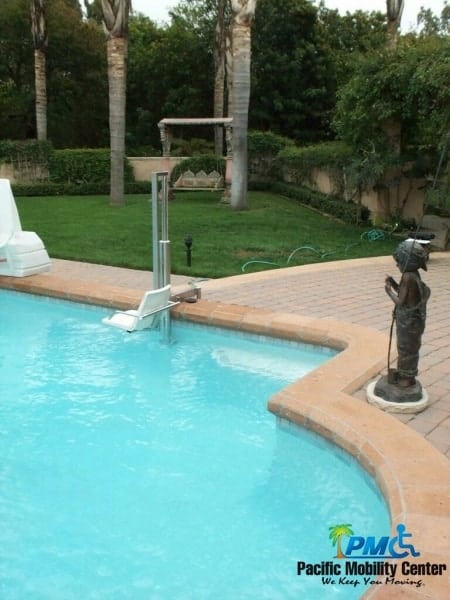Some ways how we help seniors stay independent surround accessibility, assistance, autonomy, activities of daily living, aging-in-place, and thorough assessment. Mobility aids foster independence, which can improve overall quality of life.
This February, celebrate National Senior Independence Month by fostering independence and striving to make your senior’s life better. Assisted-living facilities and caregivers offer some suggestions to enhance everyday living, and these can easily be translated and implemented into other living situations and homes, including the installation of mobility devices for those with physical limitations or disabilities. Embrace independence and celebrate by offering a helping-hand and treating older individuals with dignity and respect.
Some Ways We Help Seniors Stay Independent With Mobility Aids Are:
A little assistance is often all that is needed to improve quality of life and enhance everyday activities for a senior. Mobility aids, primarily lifts, can increase the access that a senior has around their own home surroundings; for instance, users may be able to get upstairs, drive their vehicle, or get in and out of a swimming pool! Depending on your situation, lifts can make the home more convenient and comfortable.
Mobility aids facilitate independence in the following ways:
Accessibility
Do you know what it is like to be unable to access areas of your home surroundings? Increasing access is one of the main reasons why consumers invest in mobility aids. Some popular options include porch lifts, stairlifts, and vehicle lifts, but access may also extend to widening doorways for wheelchairs and scooters, installing ceiling lifts for getting out of bed, or grab-rails for uneven or raised surfaces. Having access to the spaces you want or need to visit is, indeed, part of living independently.
Assistance
Often times, a little assistance goes a long way toward independence. A helping-hand may be all that is needed to preserve autonomy and stay in a current living situation. This helping-hand may come in the form of a visit from a caregiver, home health services, or mobility aids to increase safety and access around the home. If you are seeking assistance for a senior, check out online resources to find service providers in your area; if you are looking for quality, made in the USA mobility aids, look no further than the mobility experts.
Autonomy
Speaking of which, another way that we foster independence is by providing seniors with dignity and autonomy and allowing seniors to convey their wishes and respect their choices. This may involve creative problem-solving when a senior does not want any help and that is reticent toward changes in their living situation. Mobility aids and equipment can protect the senior from having to make these tough decisions, and allow them the freedom to stay in the home that they love. This also can make caregivers safer when assisting seniors, which leads to greater autonomy for all involved.
Activities of Daily Life (ADLs)
Part of everyday life are tasks like dressing, grooming, eating, and bathing- which are called activities of daily living (ADLs). These ADLs can present challenges for seniors with physical impairments or disabilities. Grab-bars by the sink, reaching tools in the kitchen, and a step-in shower can all facilitate consumers with their ADLs, while promoting independence and fostering self-confidence among the aged.
Aging-in-place
Another way to show support for seniors’ independence is to allow them to age-in-place. This basically refers to allowing them to live in their own homes for as long as possible and by supporting their choices- even if you don’t agree with them. This is where mobility aids, devices, and augments can make a dramatic difference in the senior’s safety and quality of life when living with a disability or physical limitation. This can also help a caregiver support and assist the senior, without fear of injury or accident when helping those with mobility issues.
Assessment
To truly determine how to best help seniors preserve their independence, an assessment of needs is warranted. This may uncover mobility aids and assistance that will be helpful and practical, while also seeking to look at ways of improving the overall quality of life. You should only buy from mobility aids vendors that offer a thorough assessment of needs and professional installation; this guarantees long-term satisfaction and support after you have brought home your mobility equipment.
Contact Us Now For Your Mobility Solutions
Don’t waste another day without optimizing access and putting the priority on independence. Whether you or a loved one lives in their own home, assisted-living, or other situation, strive to replicate how we facilitate independence to enhance overall quality of life. Contact the mobility experts at Pacific Mobility to assess your current and future needs, and to discuss installation, costs, and options.
Would an increase in access make a difference in your life or the life of someone you love? If so, talk with the experts about mobility aids and equipment to increase convenience, improve autonomy, and preserve independence today. Also, use these suggestions and hints how we help seniors stay independent now!
President, Husband, Father, Grandfather Graduate of UC Davis- Bio Sci Major- Go Aggies! Jeff has extensive experience in all of Pacific Mobility’s products and services, and specializes in accessibility products as well as stairlifts, ceiling lifts and custom wheel chairs. His hobbies include spending time with family, gardening, mountain biking, exercising and off road motorcycle riding.
24 years as Owner/President of Pacific Mobility Center – selling, installing, and servicing stairlifts, porch lifts, ceiling lifts, pool lifts, handicap ramping, specialty wheelchairs, scooters, power wheel chairs, and other power mobility devices
Certified Environmental Access Consultant since 2008
Licensed General Contractor since 1998
Certified Aging in Place Specialist since 2016
Board Member for Home Access Professionals
Member of Association of Members of the Accessibility Equipment Industry (AEMA)




